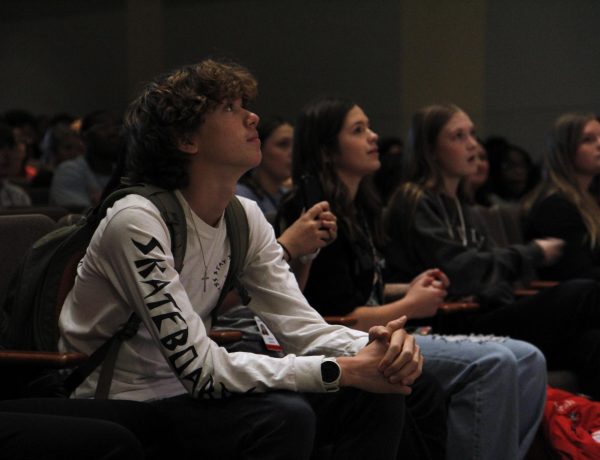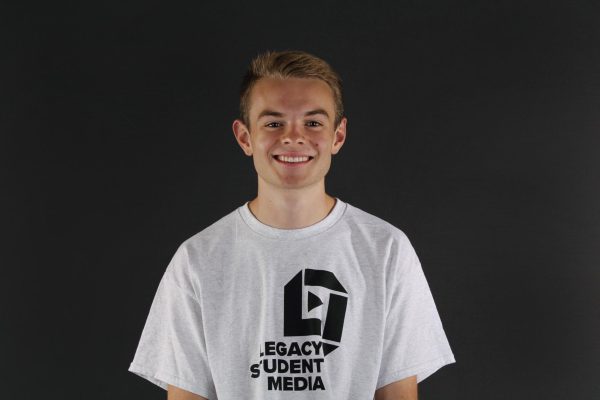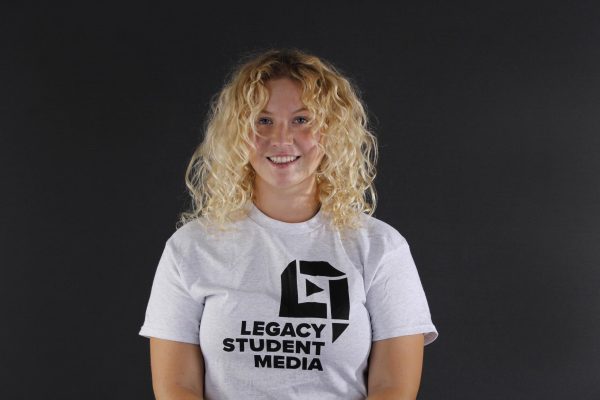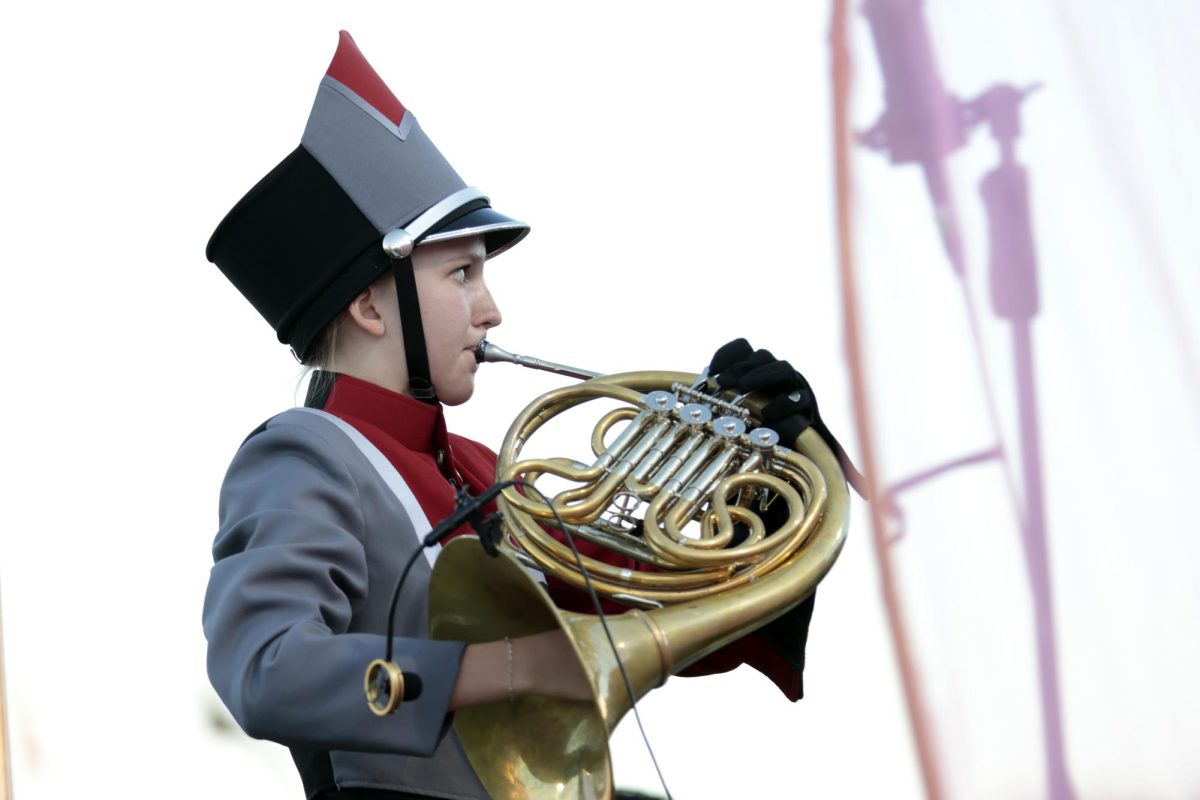When the 2:55 bell rings to leave, students load buses and fill cars while a group gathers in the cafeteria. After other students have left, these 35 Key Club members roam the school, recycling carts in hand, collecting recycling from each classroom.
In response to a decline in student involvement worldwide, Dr. Stephanie Boneau, principal, works to promote engagement through her “Get Connected, Stay Connected, Be Successful” mission she started when she joined Legacy in 2022.
“When I was in the classroom, it didn’t resonate with me how much the student’s connection to the campus, feeling part of something greater than yourself, played a role in how they performed,” Dr. Bonneau said. “So it got me thinking, if you had an option of whether or not you were going to attend high school, how many students would we lose just because they just don’t feel like they belong?”
Dr. Bonneau learned more about the involvement issue at new student orientation as her son entered college. A 2023 study on campus involvement showed college students involved in on-campus organizations were more likely to complete their first year of college than those who weren’t involved.
“It didn’t sink in until Carter, my son, and I went to Tarleton for orientation and the orientation leader had this saying: ‘Get connected, stay connected, be successful,’’’ Dr. Bonneau said. “She went over the number one reason that people leave college is because they don’t feel connected to the campus. They don’t feel anything that keeps them there. Maybe they feel like nobody’s gonna miss them. Maybe they feel like they don’t belong. Maybe they just don’t plug in.”
Involvement in organizations goes well beyond the walls of high school, with a 2019 study showing happy workers are about 13% more effective than unhappy workers. Similarly, students involved in clubs on campus are happier, in and out of school. Throughout some of her doctorate work, Dr. Bonneau found the importance of teens and feeling a sense of belonging.
“As a teenager and young adult, feeling like you’re a part of something bigger than yourself is important, in school and even in your family unit. At home, students need to have some responsibilities and ownership, and the same thing transfers to the campus,” Dr. Bonneau said. “How can we find ways to get all of our students connected to the campus, so that they have a reason to want to come here? You feel like you’re a part of something, there’s some pride in your work and in the organization that you’re attached to.”
Over the past two school years, Dr. Bonneau worked with club sponsors to make clubs more accessible for students of all backgrounds. In 2021, Key Club had eight active members and met virtually. This year, 150+ members make up Key Club. The club received awards for a 75% membership increase and second place in the Texas-Oklahoma Key Club organization at the 2023 spring convention.
“I’ve always found our board to be willing to go out of their way to attract members and create an environment of diverse student groups, ultimately creating a safe place for engaged service that feels less like a chore and more as an opportunity to build their school, community, and leadership,” Key Club President Abigail Castro, 12, said.
This school year, Key Club hosted a Back to School supply drive, Warrior Run, a Toys for Tots fundraiser and pep rally, and weekly recycling collection, allowing members to get involved in many different ways.
“I know I am biased, but I genuinely believe Key Club is the best service club at a high school level. For many clubs, you have to be able to represent them well and put yourself in sometimes difficult social situations, whether that is approaching a group of strangers to encourage them to join, incentivizing a fundraiser or even leading meetings with 100+ in attendance,” Castro said. “Clubs provide a community of like-minded people who become friends who are continuously supportive of your goals but also you gain a new perspective simply by proxy of a club’s diversity.”
Fellowship of Christian Athletes (FCA) meets weekly on Wednesdays. Last year, about 50-60 students regularly attended Wednesday Bible Study’s. This school year, about 250 students gather weekly during advisory. The club also hosted Fields of Faith, an after-school event with live music, guest speakers, and student testimonials. Over 700 students attended.
“Over the past couple of years, we have tried so hard to get more kids to come attend FCA, we tried snacks, games, speakers, everything we could, but we have never seen anything like this group before,” FCA Vice President Sarah Hadash, 10, said. “We have hundreds of kids every Wednesday just eager to hear about the Lord, which is such an incredible blessing to see within your school.”

FCA moved weekly huddles inside the school building rather than the MAC and hosted it during advisory rather than before school, making it more accessible for students. The club advertises its weekly bible study and monthly evening huddles on Instagram.
“FCA is completely student-run so I think it makes it more appealing to students because it’s talked about so often,” Hadash said. “Joining a club or organization will truly help to make the short time in high school so much more enjoyable, along with help making friends that will last a lifetime. I’m so grateful for the opportunity to have this club.”
While there are many clubs already formed for students to join, the process of starting a club is fairly simple. Once a staff member agrees to be a sponsor, the club must be approved by Dr. Bonneau.
“I feel like we have more offerings than we’ve had in the past,” Dr. Bonneau said. “The attendance of our clubs more closely aligns with the demographics of our campus. Clubs should be that way–a cross-section of the campus.”
Additionally, being involved with a club brings students closer to aligning with Vision 2030, preparing students for life, and teaching them valuable skills like working with a team, collaborating, and leadership. According to a 2019 study by Ohio State University, students involved in organizations are about twice as likely to be considered by employers.
“Anywhere you go to work, you’re part of a team,” Dr. Bonneau said. “Learning how to work together to accomplish something, how to map out projects, how to work with somebody you don’t like very much, those are all skills you can learn in high score. This is a safe place to learn those skills.”












